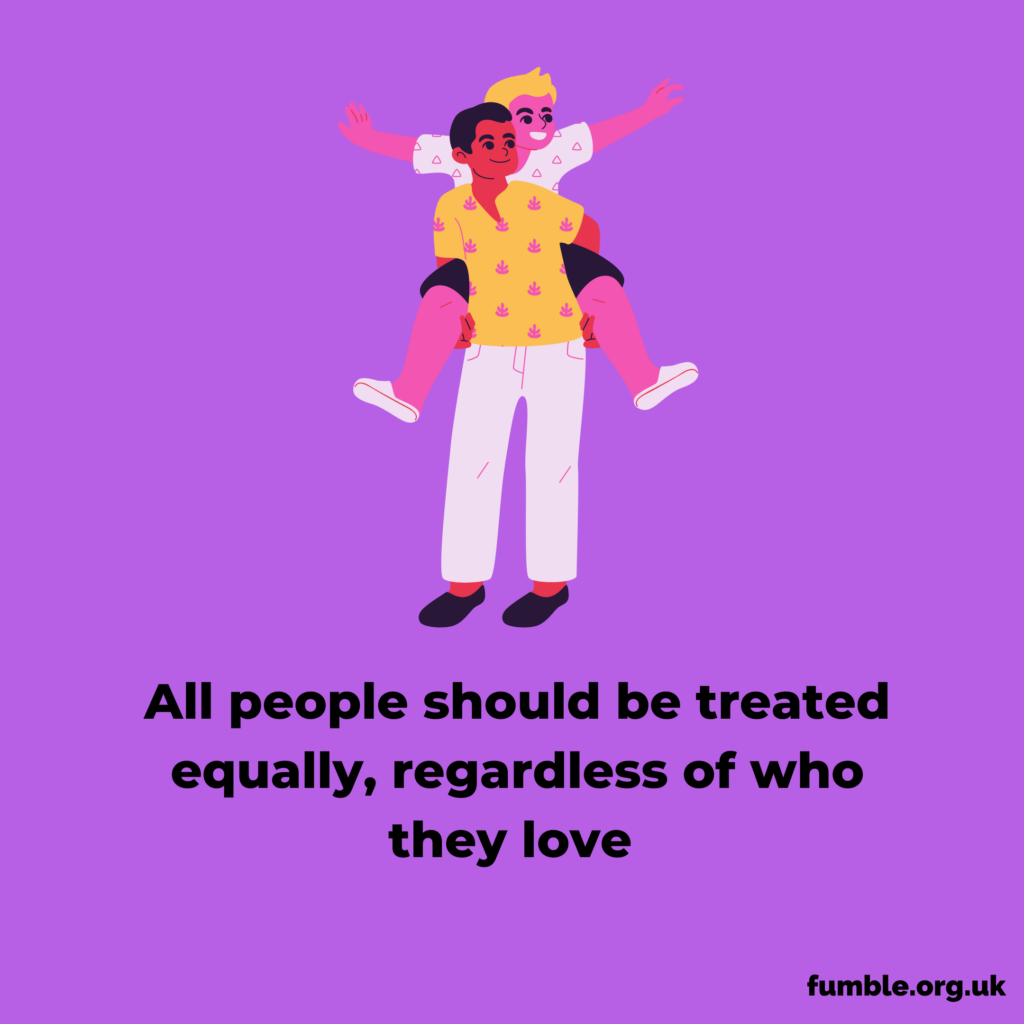Only you can answer this question – but here are some pointers to help you feel more comfortable exploring your sexuality
Our writer Morven explains how they explored their sexuality.
Here’s my first bit of advice – you will not find the answers you are looking for at the bottom of an internet quiz, within a checklist, from a stranger’s opinion, or anything to do with anyone else. Only you have the ability to define your sexuality. And there are lots of people who do not have that power, including: your parents, your teachers, your friends, celebrities and influencers, religious people, politicians and random people on the internet.
It’s important to remember that someone’s sexuality is always valid, regardless of whether or not they’re ‘out’. There are so many factors behind whether people feel ready to publicly or privately define their sexuality.
Okay, so let’s talk about the 4 main categories of sexuality:
1. Heterosexuality
People who are emotionally, physically and/or sexually attracted to people of the ‘opposite’ gender are heterosexual. We’ve put ‘opposite’ in quotation marks because that opposition relies on gender identity being just men or women, when there are actually many different gender identities. But basically, heterosexual men who are attracted to women, and heterosexual women who are attracted to men.
A lot of people use the word ‘straight’ when talking about people who are heterosexual.
2. Gay and lesbianism
Historically gay more specifically meant men who are emotionally, physically and/or sexually attracted to men, but now it’s often used in a gender-neutral way to mean someone who is attracted to other people of the same gender. A lesbian is more specifically a woman who is attracted to other women.
3. Bisexuality and pansexuality
Bisexual (bi) and pansexual (pan) people are emotionally, physically and/or sexually attracted to people of all genders. Some bi and pan people are more attracted to people of a certain gender, or no/all genders than another. Some people describe pansexuality as an attraction regardless of someone’s gender – their gender isn’t a part of the attraction. But both labels can be used in slightly different ways. Everyone’s experience of sexuality is so different. There isn’t a right or wrong way to be bi or pan.
4. Asexuality
Being asexual (ace) means someone experiences limited sexual attraction to others, or not at all. There are lots of different ways to be ace and it’s okay to not want to be sexually intimate with someone else. Asexuality is perfect and valid.

What about queer? What’s the difference between queer and gay?
Queer is a broader label to include all the various LGBTQ+ identities and anyone who isn’t heterosexual or cisgender. Historically queer was a derogatory word used to insult people based on their sexuality and gender identity, but now it’s been reclaimed by many LGBTQ+ people. Lots of LGBTQ+ people self-identity as queer and describe the LGBTQ+ community as the queer community.
When talking about people who aren’t heterosexual or cisgender, people often prefer to use the term ‘queer’ instead of ‘gay’. Queer is a more inclusive term because it covers a bunch of different identities, including but not limited to: lesbians, bisexuals, pansexuals, asexuals, as well as transgender, non-binary and gender non-conforming folk.
Am I gay?
There is no gay blueprint, or a perfect formula to understanding your sexuality. You just have to go with what feels right for you. I’d say be open. If you’re on this article, there’s a good chance you probably already know the answer to this question. Even if it’s just a little bit.
I spent my entire teens googling away, answering quizzes, fantasising about girls, and I came out as bi when I was 22. Googling, doing quizzes and fantasising about people doesn’t automatically define your sexuality… but it does help you figure it out.
Think about what you like. What turns you on. Who makes you feel excited. These are all pretty good indicators. And always keep in mind that only you can know and define your sexuality. Don’t ever let anyone make you feel pressured to be a certain way.
Everyone’s sexuality is different, just as all people are different. All you need to remember is the way you are is just right. You do not need to change who you love or who you’re attracted to because someone doesn’t agree with it.
Explore and experiment with your sexuality. Enjoy it and have fun! Don’t feel the need to put a label on it, or define it until you feel ready to do so. Just make sure you’re not doing anything at anyone else’s expense. Make sure you’re being respectful and considerate of other people’s feelings at all times. Remember: Exploring your sexuality is great as long as you and anyone you’re with always gives FULL consent to any sexual intimacy.
Other support
Read more
Last Reviewed 26 October 2022
Image Credit: Alexander Grey via Unsplash



